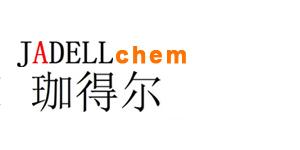Recombinant Mouse CXCL3作为中性粒细胞的化学诱导剂,可参与炎症反应。
Synonyms
rMuCXCL3; C-X-C motif chemokine 3; Dendritic cell inflammatory protein 1; DCIP-1 ; 重组小鼠CXC 趋化因子3 (CXCL3)
Species
MouseSource
E. coli Accession
Q6W5C0 Gene ID
330122 Molecular Weight
Approximately 7.9 kDa AA Sequence
AVVASELRCQ CLNTLPRVDF ETIQSLTVTP PGPHCTQTEV IATLKDGQEV CLNPQGPRLQ IIIKKILKSG KSS Biological Activity
Full biological activity determined by a chemotaxis bioassay using human CXCR2 transfected human 293 cells is in a concentration range of 10-100 ng/ml. Appearance
Lyophilized powder. Formulation
Lyophilized after extensive dialysis against PBS, pH 7.4. Endotoxin Level
<1 EU/μg, determined by LAL method. Reconstitution
Reconstitute the lyophilized recombinant Mouse CXCL3 (rMuCXCL3) to 0.1-1.0 mg/mL using sterile distilled water or aqueous buffer containing 0.1% BSA. Storage & Stability
Lyophilized recombinant Mouse CXCL3 (rMuCXCL3) is stored at -20°C. After reconstitution, it is stable at 4°C for 1 week or -20°C for longer. It is recommended to freeze aliquots at -20°C or -80°C for extended storage. Shipping
Room temperature in continental US; may vary elsewhere. Background
Chemokine (C-X-C motif) ligand 3 (CXCL3) is a small cytokine belonging to the CXC chemokine family. CXCL3 controls migration and adhesion of monocytes and mediates its effects on its target cell by interacting with a cell surface chemokine receptor[1]. It has been shown that CXCL3 regulates cell autonomously the migration of the precursors of cerebellar granule neurons toward the internal layers of cerebellum, during the morphogenesis of cerebellum[2]. |



